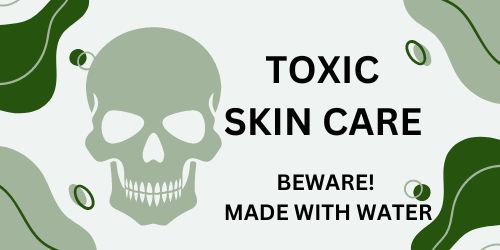Boron and Menopause
Boron is a trace element that, while not abundant, plays a crucial role in the environment and human health. It is found in small amounts in the earth’s crust, water sources, and within various foods. As a micronutrient, boron is involved in diverse biological processes, including cell wall formation in plants and the metabolism of macronutrients such as carbohydrates and proteins. In humans, boron is not currently classified as an essential nutrient due to the lack of a defined biochemical function. However, emerging research suggests that boron may influence the body’s use of other minerals and the production of hormones, hinting at its potential importance in human physiology.
The Role of Boron in Menopause and Postmenopause
Menopause marks a significant transition in a woman’s life, characterized by the cessation of menstrual periods and a decline in estrogen production. This hormonal shift can lead to various symptoms and long-term health concerns, including osteoporosis. Boron has been implicated in bone health due to its interaction with minerals such as calcium and magnesium and its potential effects on vitamin D and estrogen metabolism. These interactions may be particularly relevant for menopausal and postmenopausal women, who are at increased risk for bone density loss.
Understanding Bone Health During Menopause
Bone health is a major concern during menopause, as declining estrogen levels can accelerate bone loss, increasing the risk of fractures and osteoporosis. Estrogen plays a vital role in maintaining bone density by balancing the activity of osteoblasts (cells that build bone) and osteoclasts (cells that break down bone). The potential of boron to modulate the effects of estrogen and vitamin D on bone metabolism makes it a mineral of interest in the context of menopausal bone health.
Purpose of the Article
The purpose of this article is to delve into the scientific evidence surrounding the use of boron as a dietary supplement for menopausal and postmenopausal women. We aim to explore the benefits, recommended dosages, and potential side effects of boron supplementation, with a particular focus on its impact on bone health. By examining recent research and dietary sources of boron, this article will provide a comprehensive overview for healthcare professionals and individuals seeking to understand the role of boron in managing menopause-related health issues.
Boron’s Impact on Bone Density and Menopause
How Boron Affects Calcium and Vitamin D
Boron is a trace mineral that plays a pivotal role in the metabolism of key nutrients such as calcium and vitamin D, which are essential for maintaining bone health. Boron supplementation has been shown to reduce urinary excretion of calcium, suggesting that it helps decrease calcium loss and may contribute to bone density preservation. Additionally, boron is known to enhance the biological half-life of vitamin D, a crucial component in calcium absorption and bone health. By extending the duration of vitamin D’s active presence in the body, boron indirectly supports the maintenance of adequate calcium levels in the bones.
The Relationship Between Boron, Estrogen, and Bone Health
During menopause, the decline in estrogen levels can lead to a reduction in bone density, increasing the risk of osteoporosis. Boron has been found to influence the production and activity of steroid hormones, including estrogen. By increasing serum levels of estradiol, the most potent form of estrogen, boron may help to mitigate the loss of bone density associated with menopause. Furthermore, boron’s ability to regulate the metabolism of sex hormones suggests that it could play a role in maintaining bone strength and health during the menopausal transition.
Review of Recent Research on Boron and Bone Mineral Density
Recent studies have continued to explore the relationship between boron and bone health. Research indicates that boron supplementation can lead to marked reductions in urinary excretion of both calcium and magnesium, which are minerals critical to bone strength. Additionally, boron has been shown to increase serum levels of estradiol and improve calcium absorption in peri- and postmenopausal women, suggesting a protective effect against bone demineralization.
Animal studies have also supported the role of boron in bone health. Boron-deficient rats exhibited impaired bone healing and reduced osteogenesis, while boron supplementation stimulated bone growth and alleviated dysfunctions in mineral metabolism. Furthermore, boron has been found to regulate the expression of genes related to tissue mineralization and the actions of key hormones involved in bone growth and turnover.
Overall, the body of research underscores the potential of boron as a supportive element for bone health, particularly in the context of menopause, where the risk of osteoporosis is heightened. However, it is important to note that while these findings are promising, more research is needed to fully understand the mechanisms by which boron exerts its effects on bone density and to establish optimal dosing guidelines for supplementation.
Dietary Sources of Boron
Common Foods High in Boron
Boron is a trace element found in a variety of foods, particularly those of plant origin. Some of the most common dietary sources of boron include:
- Fruits such as apples, oranges, red grapes, pears, plums, kiwis, sultanas, and dates
- Vegetables like broccoli, potatoes, and tomatoes
- Nuts such as almonds, walnuts, and peanuts
- Legumes including chickpeas, soybeans, and lentils
- Grains such as barley, oats, and wheat
Other notable sources include avocado, wine, and dried fruits, which are particularly high in boron. These foods not only contribute to a balanced diet but also help to ensure adequate boron intake, which may be beneficial for bone health during menopause and postmenopause.
Variability of Boron Content in Foods
The boron content in food can vary significantly depending on several factors. The geographical location where the food is grown plays a crucial role, as soil boron levels directly affect the amount of boron that plants can absorb. Additionally, the method of cultivation, including the use of fertilizers and irrigation practices, can influence boron levels in crops. Even within the same type of food, there can be a wide range of boron concentrations, making it challenging to estimate precise dietary intake from food sources alone.
The Importance of Soil Boron Levels
Soil boron levels are of paramount importance for the boron content of plant foods. Regions with boron-rich soils tend to produce crops with higher boron concentrations, which in turn can contribute to a higher dietary intake of boron for populations consuming these locally grown foods. Conversely, areas with low soil boron may result in crops deficient in this trace element, potentially leading to lower dietary boron intake. It is essential to consider the regional differences in soil boron content when assessing dietary boron intake and its potential health implications.
In summary, a diet that includes a variety of boron-rich foods can contribute to the recommended intake of this trace element, which may offer health benefits, particularly for bone health in menopausal and postmenopausal women. However, due to the variability in boron content of foods and the influence of soil boron levels, it can be challenging to ensure consistent boron intake from diet alone.
By the way, something for you, a little gift!!!
I am just in the middle of publishing my book. It’s about How women can balance their hormones. One part is about food and diet, of course.
Follow this link and enter your email.
I will send you this part of the book for free once the book is published. It has many concrete, practical tips and recipes and will help you feel better during menopause or times of Big hormonal fluctuations.
Annette, Damiva Lead for Health & Wellness

Boron Supplementation
Recommended Dosage for Bone Health
Boron is gaining attention for its potential role in maintaining and improving bone health, particularly during menopause and postmenopause when the risk of osteoporosis increases. While there is no established Recommended Dietary Allowance (RDA) for boron, research suggests that a daily intake of 3 mg of boron may support bone health. This dosage has been associated with beneficial effects on the metabolism of minerals that are crucial for bone maintenance, such as calcium and magnesium, as well as on the levels of hormones like estrogen and vitamin D, which are intimately involved in bone density regulation.
Upper Limits and Safety Considerations
Although boron is necessary for optimal health, there is a threshold for safe consumption. The upper intake level (UL) for adults, including menopausal and postmenopausal women, is set at 20 mg per day. Intakes above this level may lead to boron toxicity, with symptoms ranging from nausea, vomiting, and diarrhea to more severe health issues. It is crucial to note that while dietary sources of boron are unlikely to cause toxicity, supplements can easily push intake levels into the hazardous range if not monitored carefully.
Body’s Regulation of Boron Levels
The human body has mechanisms to regulate boron levels, maintaining a balance that prevents toxicity. When dietary intake increases, the body responds by enhancing the excretion of boron through urine. This regulatory system suggests that the body can handle varying intakes of boron without significant fluctuations in blood levels. However, this does not negate the potential risks associated with excessive supplementation. It is always advisable to approach boron supplementation with caution, adhering to recommended dosages and consulting with a healthcare professional, especially for individuals with hormonal sensitivities or kidney issues that could impair the excretion process.
In conclusion, while boron supplementation can be beneficial for bone health during menopause, it is essential to adhere to recommended dosages and be aware of the upper safety limits. By doing so, one can harness the potential benefits of boron without incurring the risks associated with overconsumption.

Do you have the most commonly used but toxic, disease bringing chemicals in your skin care? Many chemicals in skincare are hormone disruptors and make menopause symptoms worse.
Find out more…
Potential Risks and Side Effects of Boron
Toxicity and Safe Consumption
Boron is a trace element that is found in a variety of foods and available as a dietary supplement. While it has been associated with benefits for bone health, particularly in menopausal women, it is crucial to understand the fine line between therapeutic and toxic levels. The body regulates boron levels through urinary excretion, and blood boron levels tend to remain constant even with increased dietary intake. However, excessive consumption can lead to boron toxicity. Symptoms of acute boron toxicity may include nausea, vomiting, indigestion, headache, and diarrhea. In severe cases, exposure to very high doses of boron can result in skin flushing, convulsions, tremors, vascular collapse, and can be fatal. The upper limit for adults, including pregnant and lactating women, is set at 20 mg per day. It is important to note that this upper limit is not a target to aim for but a threshold to avoid surpassing to prevent toxicity.
Common Concerns and Misconceptions
There are several misconceptions surrounding boron supplementation. One common belief is that high boron intake from food or water sources can lead to adverse side effects, but there is no data to support this claim. Another concern is the potential for boron to cause hair loss or weight loss. While very high doses of boron may lead to alopecia in adults and thin hair in infants, there is no evidence that moderate consumption of boron through diet and supplements affects hair loss. Similarly, while a boron-rich diet may result in weight changes, these effects are likely due to other dietary factors rather than boron itself.
Consulting Healthcare Professionals Before Supplementation
Before starting any new supplement regimen, it is imperative to consult with a healthcare professional. This is particularly important for individuals with hormone-sensitive conditions, as boron may influence the production of hormones such as estrogen and testosterone. Additionally, those with kidney disease or impaired kidney function should exercise caution, as boron is primarily excreted through the kidneys. A healthcare provider can offer guidance on appropriate dosages and help mitigate the risk of potential drug-nutrient interactions or side effects.
In conclusion, while boron may offer benefits for bone health during menopause, it is essential to approach supplementation with caution. Understanding the risks of toxicity, dispelling common misconceptions, and seeking professional medical advice can help ensure safe and effective use of boron supplements.
Boron’s Broader Health Implications
Effects on Hair Loss and Weight Loss
Boron’s influence extends beyond bone health and menopausal symptom relief, touching on areas such as hair loss and weight management. While research is still emerging, some studies suggest that boron may play a role in the health of hair follicles and the regulation of hormones that can impact hair growth. Additionally, boron’s interaction with hormones like insulin and its potential effects on energy metabolism may offer insights into its role in weight management. However, these areas require more rigorous scientific exploration to establish clear benefits and mechanisms of action.
Boron’s Role in Overall Well-being
The trace element boron has a multifaceted role in overall well-being. Its anti-inflammatory properties may contribute to reduced symptoms in conditions such as arthritis, potentially improving joint health and mobility. Boron also influences the metabolism of various minerals and vitamins, including magnesium and vitamin D, which are crucial for maintaining overall health. Furthermore, boron’s impact on hormone regulation, particularly sex hormones, suggests it may have broader implications for both physical and mental health.
- Anti-inflammatory Effects: Boron’s ability to modulate the body’s inflammatory response can have widespread health benefits, potentially reducing the risk of chronic diseases associated with inflammation.
- Hormonal Balance: By influencing the levels of sex hormones, boron may affect various aspects of health, including mood regulation, cognitive function, and even the health of skin and hair.
- Mineral Metabolism: Boron’s role in the metabolism of calcium, magnesium, and vitamin D is essential for the maintenance of bone health, cardiovascular function, and immune system support.
The Need for Further Research
Despite the promising implications of boron for health, there is a clear need for further research. Many of the potential benefits of boron supplementation, particularly those related to hair loss, weight loss, and overall well-being, are based on preliminary findings or theoretical mechanisms. Rigorous clinical trials are necessary to establish effective dosages, understand the full range of health impacts, and confirm the safety profile of boron, especially when used over extended periods. The scientific community’s interest in boron’s therapeutic potential is growing, and future research will likely provide a deeper understanding of how this trace element can be harnessed to improve human health.
As research continues to unfold, boron may emerge as a key player in the pursuit of holistic health and wellness, offering benefits that extend far beyond its current applications.

Conclusion
Boron, a trace element found in various foods and available as a dietary supplement, has been studied for its potential benefits in menopausal health, particularly concerning bone density. Research suggests that boron may influence the metabolism of minerals such as calcium and magnesium, as well as vitamin D and estrogen levels, all of which are crucial for maintaining bone health during menopause. While some studies indicate that boron supplementation can improve bone density and reduce the risk of osteoporosis, the evidence is not conclusive, and further research is needed.
Despite its potential benefits, boron must be consumed within safe limits. Excessive intake can lead to toxicity, with symptoms ranging from nausea and vomiting to more severe health issues. The upper limit for adults, including menopausal women, is set at 20 mg per day, and most dietary supplements contain boron within the range of 0.15–6 mg.
Final Thoughts on Dietary and Supplemental Boron
Considering the variability of boron content in foods and the influence of soil boron levels on plant-based dietary sources, supplementation can be a reliable method to ensure adequate intake for bone health. However, it is essential to approach boron supplementation with caution, adhering to recommended dosages and being mindful of individual health conditions and existing medications.
For menopausal women, a daily supplementation of around 3 mg of boron may offer benefits for bone health without posing significant risks. Nonetheless, it is crucial to consult healthcare professionals before starting any supplementation regimen to tailor the approach to individual needs and avoid potential interactions or side effects.
Future Directions for Research
While the current body of research provides insights into the potential role of boron in menopausal health, there is a clear need for further studies. Future research should focus on large-scale, long-term clinical trials to better understand the effects of boron on bone density, hormonal regulation, and overall well-being during menopause. Additionally, investigations into the optimal dosage of boron for specific health outcomes, as well as its interactions with other nutrients and medications, will be invaluable in developing comprehensive guidelines for boron supplementation in menopausal health care.
As our understanding of boron’s biological functions continues to evolve, so too will our ability to harness its benefits while minimizing risks, ultimately contributing to improved health outcomes for menopausal women.











